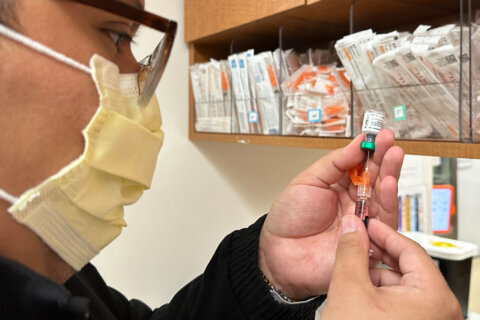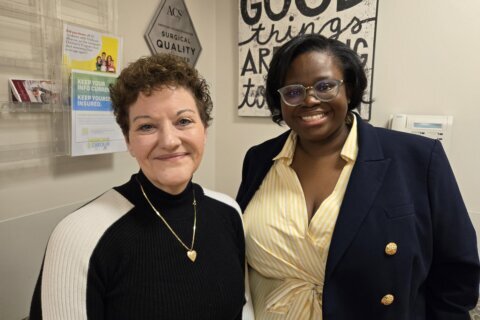The social isolation that comes with pandemic-related lockdowns has been a struggle for everyone, but a D.C.-area doctor said that it has led to an increase in the number of teenagers reporting symptoms of depression.
“Teenagers are social creatures — teens and adolescences thrive on face-to-face interaction and socializations, and the pandemic has taken away their traditional social lives,” said Dr. Asha Patton-Smith, a child and adolescent psychiatrist at Kaiser Permanente in Burke, Virginia.
Patton-Smith said that isolation is particularly challenging for teenagers as they are at a crucial stage in their development that requires social stimulation.
“At the state of adolescent development, the group mentality is extremely important — a teenager’s friend circle and their social surroundings are extremely important to them. So, missing out on this can create a tremendous feeling of loss,” Patton-Smith said.
Rising levels of depression among teenagers is especially important to try to counteract, as suicide is already the second-leading cause of death for that age group, according to Patton-Smith.
And teen depression can be difficult to spot, as their symptoms manifest differently than adults.
“A lot of teens exhibit depression more by significant irritability, sometimes anger, aggression or hostility, becoming oppositional and sometimes argumentative, isolating themselves socially, eating too much or too little, sleeping too much or too little,” Patton-Smith said.
She said parents should be on the lookout for behaviors that their teen does not usually exhibit, as they could be signs of depression.
During the winter holiday season, some may miss out on the feelings of normalcy and tradition that may have helped in previous years.
“Many of us cannot safely gather with family and friends in the way that we normally would, so this is even more of a challenge for teens experiencing depression — or even those who just experience pandemic fatigue and loneliness,” she said.
Patton-Smith recommends that parents find a way to go the extra mile to make this time feel special for their teenagers.
“Number one: Validate — recognize that this is a very difficult time and it’s OK to feel angry, upset, hurt, isolated. All those things are things that are normal feelings to have,” Patton-Smith said.
She said parents should communicate all the ways that next year could make up for some of the lost time that the coronavirus pandemic destroyed in 2020.
She also said it is important to preserve holiday traditions as long as they can be done safely.
“There’s a family that I see here at Kaiser Permanente that are buying matching Christmas pajamas and they do it every year — but, this year, they’re mailing it to the other family members that cannot wear them together, because they are socially distancing, and then FaceTime them as they are opening these pajamas,” Patton-Smith said.
Families can also try to create new holiday traditions.
“Some of my families are baking new recipes, swapping new recipes, having talent shows that they never had before via Zoom or FaceTime,” Patton-Smith said. “So those are things that can be helpful — just start new things.”
Also take time to acknowledge and process loss as a family, Patton-Smith said.
Whether it’s mourning a loved one who has died, or the loss of normalcy, families should acknowledge the hardship and pain, and make sure teenagers are aware that everyone is struggling with the circumstances.
Patton-Smith said that parents should notify a trusted professional — such as their primary care provider or a school counselor — if they believe that their teen is showing signs of depression. She also said that the Suicide Prevention Hotline is the “gold standard” for seeking help.
The number for the National Suicide Prevention Lifeline is 1-800-273-8255. There’s also an online chat.
Other mental health resources include the National Alliance on Mental Illness, the American Academy of Pediatrics and the American Academy of Child and Adolescent Psychiatry.
- Sign up for WTOP alerts
- Latest coronavirus test results in DC, Maryland and Virginia
- Coronavirus vaccine FAQ: What you need to know
- Appeals made for Md. governor to release rainy day funds for COVID-19 relief
- Dining bans in Prince George’s County, Baltimore City upheld
- DC-area music venues could see much-needed funding if relief bill becomes law
- Montgomery County receives first round of COVID-19 vaccine
Looking for more information? D.C., Maryland and Virginia are each releasing more data every day. Visit their official sites here: Virginia | Maryland | D.C.
WTOP’s Kristi King contributed to this report.








